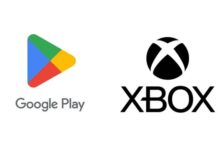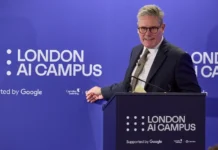Sub-Saharan Africa’s Digital Transformation: A New Era of Connectivity and Innovation
The next decade is poised to be a transformative period for Sub-Saharan Africa, as emerging technologies promise to significantly accelerate the continent’s development. For the first time, over half of the region’s population will have access to the Internet, and artificial intelligence (AI) alone could contribute an impressive $30 billion to the economy of Sub-Saharan Africa. This digital revolution presents an enormous opportunity, but its full potential can only be realized if all individuals are included in the growth.
Google’s mission to make the world’s information universally accessible and useful is particularly pertinent in Sub-Saharan Africa. This week, I had the privilege of visiting Nigeria and Kenya to witness firsthand the digital progress being made and to meet with various stakeholders, including NGOs, entrepreneurs, Google employees, developers, and businesses. These entities are creating technology that not only benefits their local communities but also has a global impact.
To mark the beginning of this journey, I am thrilled to announce two significant initiatives that will contribute to an inclusive digital transformation across the region.
Expanding Language Accessibility: 15 New African Languages for Voice Search and Google Tools
Voice technology is revolutionizing the way individuals interact with the web and communicate with their friends and family by allowing them to use their most natural means of expression—their voice. Today, we are excited to announce the addition of 15 more African languages to Voice Search, talk-to-type on Gboard, and dictation on Google Translate.
Last week, I had the opportunity to speak with Daan van Esch, a Technical Program Manager for this initiative. He explained that the update, developed by Google Speech in collaboration with the Research team in Accra, will enable approximately 300 million more Africans to use their voices to navigate the web.
This advancement is a result of progress in AI, particularly in multilingual speech recognition technology. This technology functions by converting spoken language into text. The AI model learns languages much like a child does, by associating speech sounds with written characters. Speech recognition models are trained using data from various languages to accurately transcribe speech into text in any of those languages.
Currently, Google supports typing with custom keyboards in Gboard for about 200 African languages and offers automatic translation in Google Translate for over 60 languages spoken across Africa. With the latest update, voice input capabilities have been extended to 12 additional languages on Gboard and Voice Search, bringing the total to 13. On Google Translate, voice input is now available for 13 more languages, increasing the total to 21.
The newly added languages for Voice Search and Gboard talk-to-type include Chichewa, Hausa, Igbo, Kikuyu, Nigerian Pidgin, Oromo, Rundi, Shona, Somali, Tigrinya, Twi, and Yoruba. For Google Translate, Chichewa, Hausa, Igbo, Oromo, Rundi, Shona, Somali, South Ndebele, Swati, Tigrinya, Tswana, Twi, and Yoruba are now available for voice input.
Investing in AI Education: A $5.8 Million Commitment
In our efforts to ensure that everyone can benefit from the digital economy, we are also announcing a $5.8 million commitment from Google.org to support AI skilling and education throughout Sub-Saharan Africa.
This funding will be directed towards equipping workers and students with foundational skills in AI and cybersecurity. Additionally, it will support nonprofit leaders and the public sector in acquiring essential AI skills.
Among the recipients of this funding is the Data Scientists Network Foundation, which will receive a $1.5 million grant to develop a program aimed at training unemployed and at-risk Nigerians in digital and tech skills. The long-term objective is to build advanced skills in data and AI. As part of this program, the Raspberry Pi Foundation will collaborate with Young Scientists Kenya and the Data Scientists Network Foundation to implement AI literacy education for young people in Kenya and Nigeria.
This new funding builds upon the $20 million of support provided by Google.org to organizations that help Africans develop digital skills as part of Google’s economic opportunity initiative. Additionally, Grow with Google, an initiative separate from Google.org, trained over 6.5 million people across Africa in 2023 alone in digital skills to assist them in building their careers or businesses.
Google is committed to supporting the continent in unlocking the benefits of the digital economy for everyone. I am excited to see how these commitments will further enable more people to acquire digital skills and access the web in a manner that feels most natural to them.
Why This Matters: The Impact of Digital Inclusion
The digital transformation of Sub-Saharan Africa is not just about technological advancement; it is also about empowering individuals and communities. By providing access to the Internet and digital tools in their native languages, we can help bridge the digital divide and ensure that more people can participate in the global digital economy.
Voice technology, in particular, has the potential to make the Internet more accessible to those who may not have strong literacy skills or who speak languages that are not widely represented online. By expanding language support, Google is helping to create a more inclusive digital environment where everyone has the opportunity to connect, learn, and innovate.
Furthermore, the investment in AI education and skilling is crucial for preparing the workforce of the future. As AI continues to play a significant role in various industries, equipping individuals with the necessary skills will enable them to take advantage of new job opportunities and contribute to economic growth.
Looking Ahead: The Future of Digital Africa
As we look to the future, it is clear that Sub-Saharan Africa is on the brink of a digital revolution. The initiatives announced today are just the beginning of what promises to be a decade of unprecedented growth and innovation for the continent.
By focusing on inclusivity and ensuring that everyone has the tools and skills they need to succeed in the digital age, we can help unlock the full potential of Sub-Saharan Africa and create a brighter future for all.
For more information and updates on these initiatives, visit the original website at Google.org.
For more Information, Refer to this article.



































